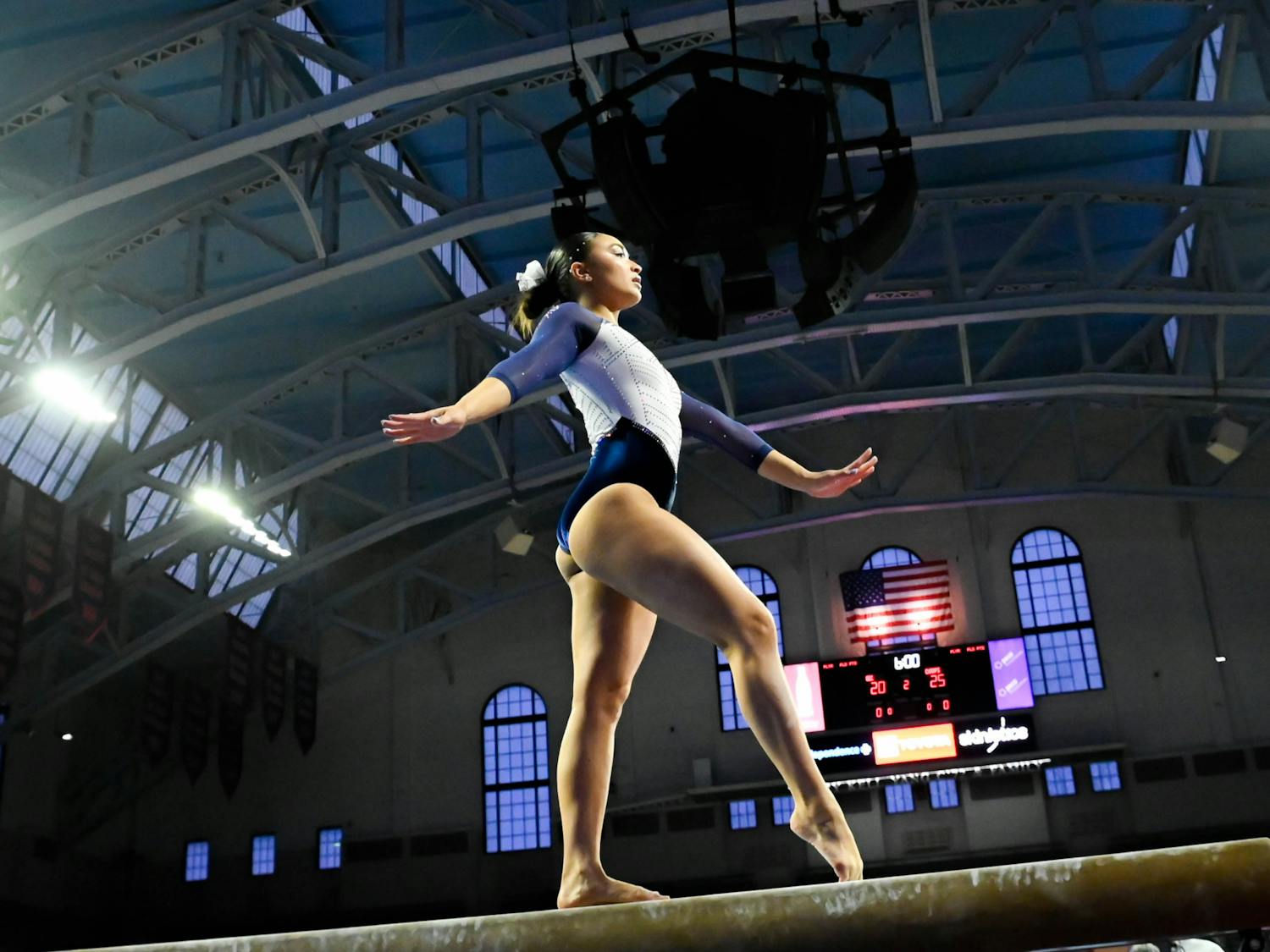Both Penn men’s and women’s basketball are 0-3 in Big 5 play thus far, with the men’s matchup at La Salle tonight and the women’s hosting of Temple representing each team’s final chance at snagging a Big 5 win.
Needless to say, this lack of success has been disappointing, particularly so for a women’s team that won the Big 5 as recently as 2015. Additionally, the games often complicate the teams’ schedules with tricky, sometimes mid-week fixtures. With these struggles in mind, our sports editors take to the roundtable to debate: why should the Big 5 matter to Penn basketball?
Cole Jacobson, Sports Editor:
Yes, it’s true that if you mentioned the phrase “Big 5” to the average Penn student right now, you’d probably have more people refer to the sporting goods store than the basketball mini-conference. It’s clear that the student energy surrounding the Big 5 isn’t where it was during the glory days of the late 20th century.
But the question wasn’t whether the Big 5 matters to the student body — it was whether the mini-conference matters to Penn men’s and women’s basketball themselves. And to that, the answer is a resounding yes.
The most undeniable trait of Philadelphia basketball is that the rivalries are historically intense, and that would be the case even if the gyms were totally empty (which, if you saw the men’s contests against Villanova and St. Joseph’s earlier this year, you would know not to be true). Many of these athletes played high school ball either with or against each other, leading to longtime relationships and rivalries that only ramp up further at the college level. Furthermore, the intimacy between these players only grows more as a result of the notoriously competitive summer pick-up circuit in Philly.
And this doesn’t even account for the familiarity shown between the coaches, whose history confirms the meaning of “City of Brotherly Love.” Penn head coach Steve Donahue used to coach under Temple’s Dunphy, who also played and coached at La Salle. Penn assistant coach Joe Mihalich Jr. is the son of former La Salle player and head coach Joe Sr., while St. Joe’s’ Phil Martelli and Villanova’s Jay Wright are both Philadelphia natives who have worked at their schools for north of 20 years.
Both on the floor and on the sidelines, the intimacy and competitive nature between these five schools is as present as ever.
Yosi Weitzman, Associate Sports Editor:
Unfortunately, Big 5 basketball seems to be losing importance year by year. It doesn’t help that both Penn teams are winless so far this season, but it wouldn’t even help that much if both were undefeated. Let’s be honest, both of these teams’ only shot at making the NCAA tournament is definitely through winning the Ivy League. The women’s team could maybe pick up an at-large bid (à la Princeton in 2016), but history isn’t on the Ivy League’s side with that one.
All that said, as someone who grew up in Philly (partly), I can tell you that the Big 5 still matters.
For one, the history is undeniable. The Big 5 has been around for over 60 years and its primary host, the Palestra, is celebrating its 90th anniversary this season. On top of that, four of its men’s teams (St. Joe’s, Villanova, Penn, and Temple) rank in the top fifty in all-time most winningest programs.
Perhaps even more important than the history, however, is the pride. It is easy for outsiders to discount Ivy League basketball, and no Penn basketball team has ever won a national championship, so the Big 5 often represents Penn’s best chance to make a name for itself. With a college basketball scene as rich as Philly’s, competing the Big 5 is definitely still a big deal for Penn basketball.
Jonathan Pollack, Sports Editor:
Sure, the Big 5 has a long storied history. But that’s in the past, and what’s most important about the mini-conference now is the level of play that they bring to the Philly area and to Penn’s schedule on both the men’s and the women’s side.
The fact that there are four other high quality teams in such a short geographic radius, including the reigning national champion on the men’s side, means a great deal for the Quakers each year. It puts tough opponents that will challenge them on their schedule and force them to step up their game.
Penn teams have struggled with the Big 5 in recent years, but that doesn’t mean these games are any less important. Those games give them an important test against difficult opponents, to work out the kinks, and to maybe steal a game and a lot of momentum heading into conference play.








